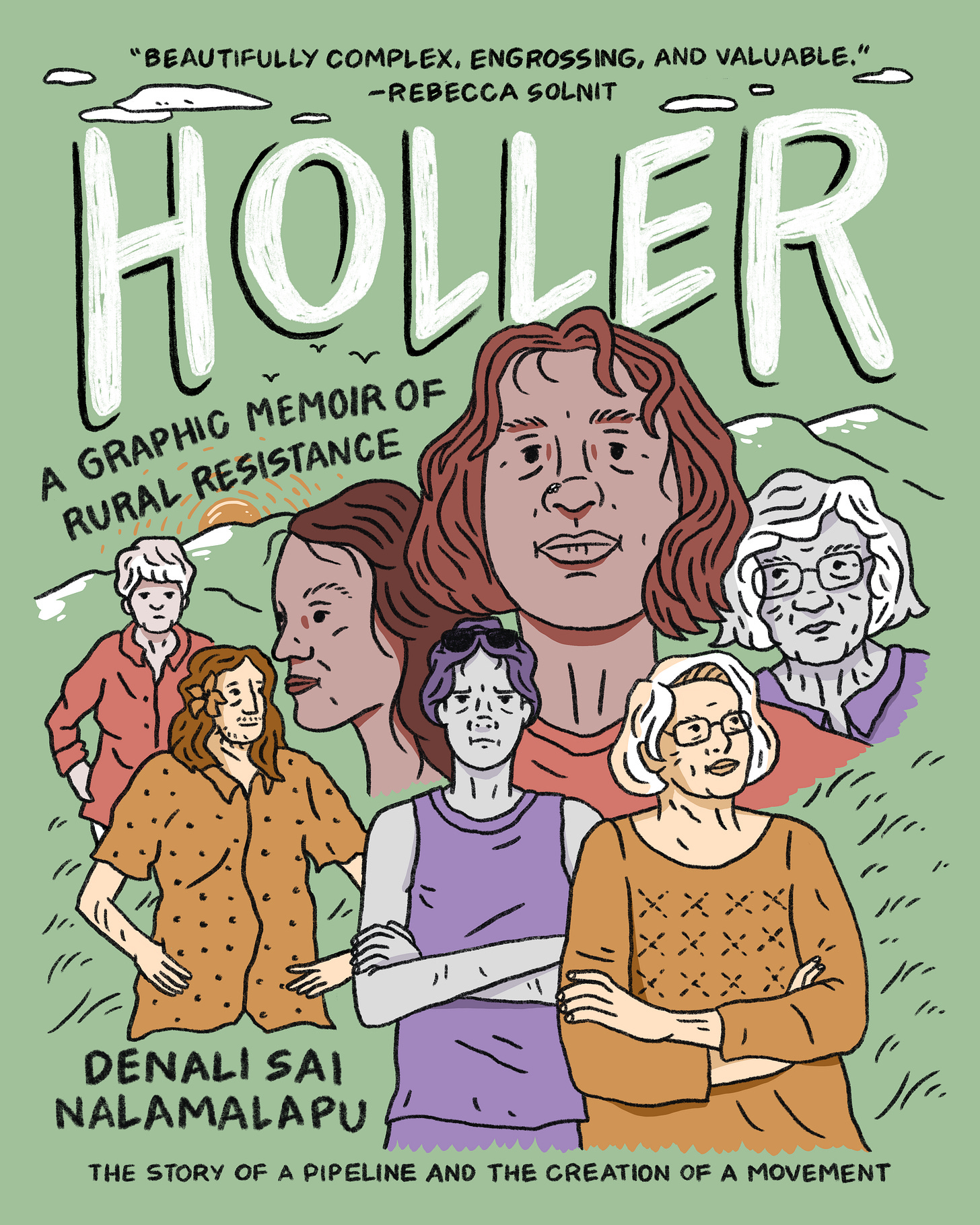An Interview with Denali Sai Nalamalapu
Comics allow me to communicate deep feelings and nuanced messages with writing and illustration.
Denali Sai Nalamalapu has a new book coming out about rural resistance to the Mountain Valley Pipeline. They spoke with us about their comics journey, the forthcoming graphic novel, and learning to trust yourself.
Describe your comics journey—how did you get into making comics?
My mother gave me a book on how to draw cartoon people when I was a child. I was captivated by the play and variation involved in drawing cartoon people and practiced for years. Then I got interested in “higher” forms of art like ceramics and portrait painting. But my love was always illustration. After studying English Literature college, I started working in climate communications because I wanted to communicate the climate crisis to bigger groups of people by making it more intersectional and accessible. I stumbled back into comics when brainstorming new ways to communicate the grassroots pipeline fight I was working on. I realized comics are the perfect way to merge my skills and love of writing and visual art in an accessible way.
How did you develop your voice?
My style comes from my early experience in cartoons, my portrait painting during the pandemic, and my intention to make the book accessible. I want the reader to feel a connection with the characters in the book, so close they feel like they may be able to pick up a pencil and write their own stories into our collective future. My voice comes from my career as a climate organizer, my intersectional background as a queer, first generation South Indian American, and my love of nature.
What drew you to the story of Holler: A Graphic Memoir of Rural Resistance?
I organized with communities against the Mountain Valley Pipeline. The people I met inspired me, especially because they were ordinary people who became pipeline resisters because the massive project happened to come through their yard or community. I wanted more people to read their stories and see that anyone can resist environmental justice—you don't have to look or talk a particular way.
What are some of the joys and challenges of making nonfiction comics?
I love to draw, and I love to draw for a purpose. Comics allow me to communicate deep feelings and nuanced messages with writing and illustration. The biggest challenge is trusting that I know what I'm doing. Then it's finding the time to make comics—between working full time, spending time with my loved ones, and getting outside.
Anything else you would like audiences to know about the book?
All six people profiled in Holler are real people from diverse racial, age, and class backgrounds. This is important to me because they show readers how different people can use the skills they have to protect what they love. I hope that Holler is part of a bigger conversation on how we can build community and protect our planet, even against insurmountable odds.
Denali Sai Nalamalapu (they/them) is the author of Holler: A Graphic Memoir of Rural Resistance. They are a climate organizer and comic artist living in Southwest Virginia, originally from Southern Maine and Southern India.
Instagram: https://www.instagram.com/denalisai/
Virtual launch event: https://www.crowdcast.io/c/hollergraphic
Virtual comics workshop: https://www.crucialcomix.com/product/navigating-climate-anxiety-and-grief-through-comics/








